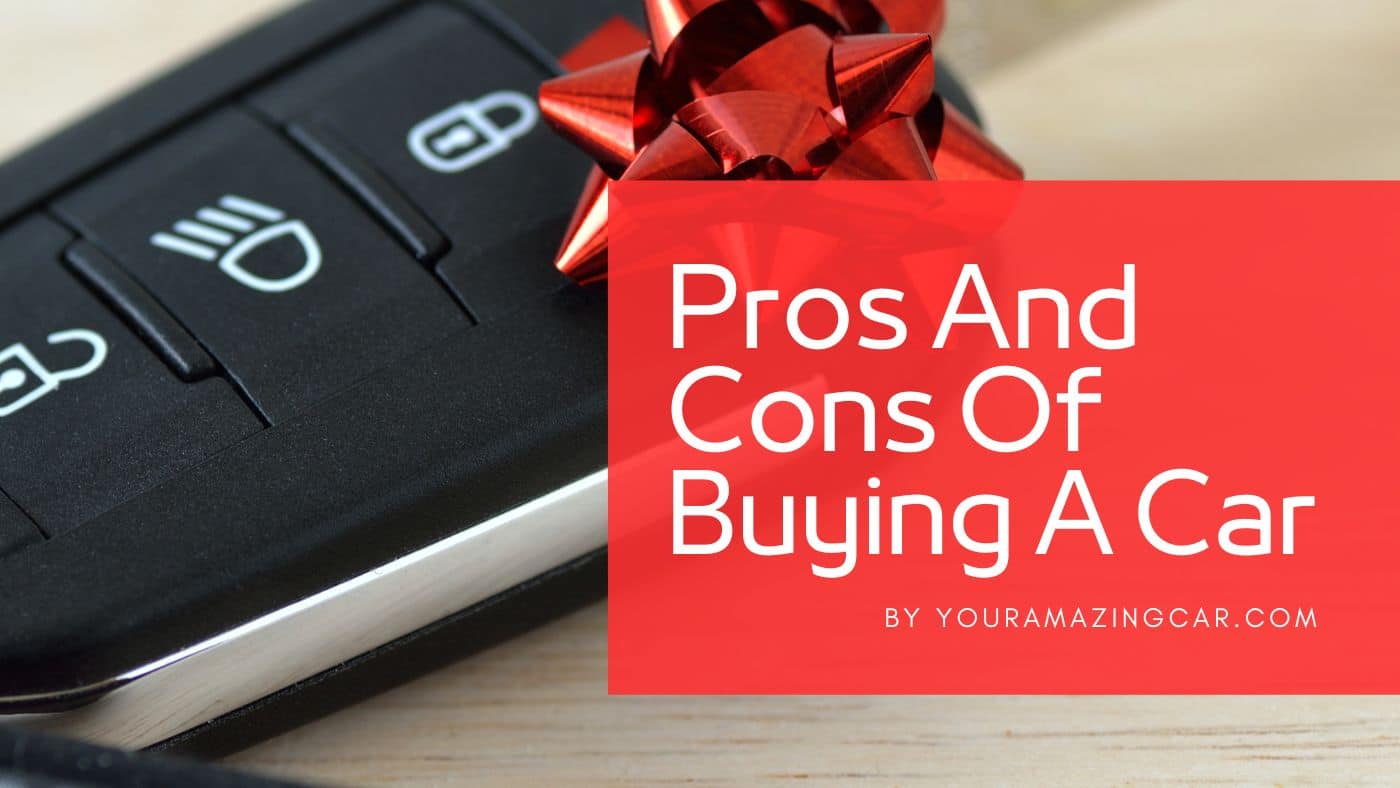Can You Buy a Car With Cash? – Should You Pay Cash For A Car?
Can you buy a car with cash? Yes, you can absolutely buy a car with cash if you have enough saved up. However, you should be aware that if the seller or dealer permits it, you can pay by wire transfer, check, or another method of payment that doesn’t involve taking out a loan.
When it comes to car buying, you often face the decision of whether to pay for a car with cash or to finance the car through a car loan. Opting to use cash to buy a new or used car means you’re a cash buyer, which can greatly simplify the purchase a car process at the dealership.
Paying with cash eliminates monthly payment, loan payments, and the need to pay interest, which can add a significant amount over the term of the loan. When you buy the car in full, you also won’t have to worry about your credit score as much, since you’re not seeking to take out a loan. However, if you’re looking to build credit, opting to finance the car might be more beneficial.
Why Consider Paying Cash for a New or Used Car?

When considering a car purchase, paying cash can significantly alter the buying experience. Without the need to worry about car financing with a salesperson, you sidestep potential interest rates and focus solely on the price of the new vehicle or used model. This negotiation simplifies, as both you and the salesperson concentrate on finalizing the sale price.
By choosing to pay with a personal check, you not only demonstrate serious intent to get the car but also eliminate monthly burdens; there’s no anxiety over the next car payment because it simply doesn’t exist. This upfront payment method can also inspire the dealer to offer more favorable terms or discounts, making your car purchase experience smoother and potentially less expensive.
How to Buy a Car With Cash: Steps and Tips
When deciding to buy a car with cash, the initial step in the buying process is to find a car you like. This is crucial because paying in cash means you need to be certain about your choice, as there is less flexibility compared to opting to finance a car instead.
After pinpointing the perfect vehicle, it’s essential to get the car inspected by a professional. This ensures that your cash investment is going towards a reliable and problem-free car. Use Kelley Blue Book to find out some of the actual car value and see which dealers offer incentives.
Many people believe that cash can be a good way to avoid the added interest and fees that come with financing. If you decide to go this route, it’s generally safer and more practical to prefer a cashier’s check over carrying large amounts of cash to pay for the vehicle.
This method of payment is not only secure but also easy for the seller to process, making the buying process smoother for both parties.You do not want to miss out on special financing opportunities that may be available when purchasing a vehicle.
Use a loan calculator with your desired terms to see what options are available for you. Used cars allow you to leverage the car depreciation curve to your advantage and potentially save you money in the long run. Also, new vehicles pay more in auto insurance .
Pros And Cons Of Buying A Car Outright With Cash

When you decide to pay for a car outright with cash, there are pros and cons of using this method. A notable pro is the absence of finance charges, which means you know you are paying the exact price of the vehicle without additional interest. However, a significant con might be the depletion of your liquid assets, leaving less in your reserve for emergencies.
Pros of using cash to pay for a vehicle
One of the main pros of using cash to purchase the car is that you’ll pay the exact amount without incurring interest or financing fees. Paying for a vehicle with cash means not being tied to monthly payments, giving you financial freedom. Furthermore, paying with actual cash can sometimes allow for negotiation on the price, saving you more money in the long run.
Cons of using cash to buy a car
While there are reasons to pay cash when looking to buy a new one, several cons accompany this method of purchasing. The immediate impact on one’s savings can be significant, given the average price of a new car and the overall cost of the car. Paying in cash means a large sum of money exits your account at once, which could have been otherwise invested or saved for emergencies.
Auto Loan vs. Cash Payment: What’s Best for Your Financial Situation?
When considering purchasing a car, one significant decision is whether it makes more sense to pay for the vehicle in cash or secure an auto loan. If you have a large amount of cash on hand, you might lean towards paying for the car you want to buy outright. Paying in cash can save you from accruing interest over time and offers the mental peace of knowing you own your car free and clear.
However, not everyone has the amount of cash necessary to take cash and pay for a car upfront. In such cases, an auto loan can spread out the financial burden, making it easier to manage payments and possibly allowing you to afford a better car than you might with cash alone. The downside is the addition of interest, which increases the total amount paid over time.
Weighing whether it’s better to pay off the loan quickly or to save your cash for other investments or emergencies is crucial. Stick to your budget and build your credit score up before you make the actual purchase. Once you do this you are going to be ready to buy the vehicle that you wished for.
Car Dealership’s Perspective If You Pay In Cash
From a car dealership’s standpoint, the suggestion that a customer should never pay cash may initially seem counterintuitive. However, this perspective is rooted in the dealership’s financial mechanics. A car dealership is going to suggest that you finance the car.
The intricacies of financing options often provide both the dealership and the buyer with more favorable outcomes, contrary to the traditional belief that cash payments are always preferable. In essence, while the allure of a cash transaction exists, the benefits of alternative financing solutions cannot be overlooked by either party.
Is it normal to buy a car with cash?
For many car shoppers, the notion of coming up with the full price of a new car in cash might seem unorthodox. However, it remains a viable option for those who prefer not to engage in financing or leasing agreements. Cash buying is totally normal for those who are not in a limited budget.
Purchasing a car with cash can streamline the buying process, eliminating the need for a check from your bank or the negotiation of loan terms. It also appeals to car shoppers looking for a straightforward transaction without the added complexity of interest rates and monthly payments.
Should you tell dealerships you are paying cash?
It’s important to let the dealer know if you plan to pay cash early in the process. Some car dealers prefer buyers to finance the car because they stand to make more money from financing arrangements and potential add-ons. Thus, revealing that you are going to pay cash too early could potentially affect the price of the car you’re negotiating on.
On the flip side, car dealerships might view cash buyers as a quicker deal, which could work to your benefit. Regardless, when car shopping, you need to decide whether to pay cash or finance based on your personal financial situation, the car you want, and your future financial goals.
Remember, even if you buy a car with cash, you will still need to pay for car insurance, which is a continued cost beyond the initial purchase. The decision to buy a new car with cash or to finance it depends on your individual financial circumstances and what you’re most comfortable with.
If you have the cash to buy a car and do not want the burden of monthly payments, paying outright for the car can be a sensible option. Set your budget and try to use your credit card or debit card for the down payment. This gives you more time to save up for the purchase while also building credit through regular, on-time payments.
Does buying a car in cash hurt your credit?
Purchasing a vehicle outright with cash saved does not necessarily harm your credit score directly, as the transaction itself isn’t reported to credit bureaus. However, it precludes the opportunity to build credit through a financed purchase, where negotiating the price with the seller and making timely payments could have positively impacted one’s credit history.
By choosing to use cash saved, one might pay for the convenience of a debt-free purchase at the expense of losing a potential avenue for credit improvement. Car loans or financing deals are going to require you to run your credit score and demonstrate your history of responsible borrowing and repayment.
Is it better to finance or pay cash for a car?
Deciding whether to use financing or buy it with physical cash hinges on one’s financial circumstances. If one can afford to pay the full amount up front, paying with physical cash eliminates future interest charges. However, financing offers the flexibility of retaining capital for other investments or expenses.
If your goal is to avoid paying interest payments, then auto loans are not the way to go because the monthly loan payments will include interest charges. Paying cash for your car will help you save money as well as allow you to keep larger cash reserves to cover unexpected expenses.
Car buyers who have a strong monthly budget can afford to pay the interest rate on a loan, but it is still important to consider the overall cost of borrowing. If you have enough money in your savings account, buying a car with pure cash will save you money in the long run.
The auto-purchase process is faster, and sometimes you can still receive some of the dealer incentives, like negotiating the final price to get the best deal possible. There are a few reasons why you should probably avoid going this route, for example, if you have a larger net worth. Here, you should buy those expensive vehicles that you want without worrying about getting a better deal.
Last Updated on: March 16, 2025


Until I read this post, I never understood how helpful cash automobile purchases may be. The ideas on negotiating power and avoiding interest rates really open eyes!
Still another excellent post from you. I always enjoy reading your works.
This post really helped! I shall come back to it once more.
You obviously give your writing great thought; every line seems to have been placed there for a specific reason.